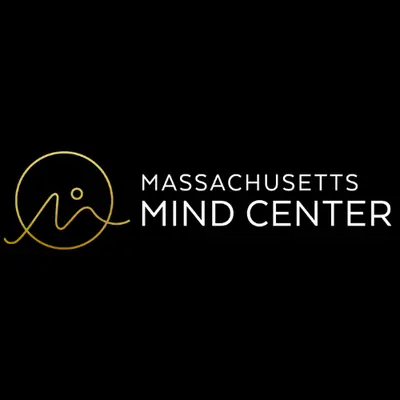We use cookies to personalise site content, social media features and to analyse our traffic. We also share information about your use of this site with our advertising and social media partners.
About Me
 Massachusetts Mind Center
Massachusetts Mind Center Massachusetts Mind Center is a Boston-based mental health practice offering personalized therapy, medication management, ketamine-assisted treatment, and wellness services. They provide in-person and virtual care with a focus on compassionate, evidence-based support.
Posted by - Massachusetts Mind Center -
on - 11 hours ago -
Filed in - Health -
-
9 Views - 0 Comments - 0 Likes - 0 Reviews

Your daily diet does more than nourish your body it can also determine how well your medications work. The food you eat, the timing of your meals, and even your hydration habits can either enhance or interfere with a medication’s effectiveness. While most people think of side effects and dosages when discussing medications, diet is an equally crucial—yet often overlooked factor. Understanding how nutrition interacts with prescriptions can help you achieve better health outcomes and avoid preventable complications.
Every medication you take undergoes a journey through your body. Once ingested, it’s absorbed, metabolized, and distributed before it can begin to work. The food you eat can influence this process by changing how quickly a drug is absorbed or broken down. For example, high-fat meals may slow absorption for some drugs, while others require food to improve their effectiveness.
In therapy settings—whether you’re managing stress with Hypnosis Therapy or working through relationship issues in Couples Therapy—medication may play a supportive role. But if diet interferes with medication function, progress in these therapies may also be affected.
The first and most common way diet affects medication is through absorption in the digestive system. Some foods can bind to medications and prevent them from entering the bloodstream properly. For instance:
Dairy products can reduce absorption of certain antibiotics like tetracycline.
Fiber-rich foods may decrease the absorption rate of thyroid medications.
Grapefruit juice interferes with liver enzymes responsible for breaking down many prescription drugs, leading to higher concentrations in the body.
When you’re receiving Hypnosis Therapy for anxiety or insomnia, and are also prescribed medication, poor absorption due to dietary choices can make treatment seem less effective. Similarly, if one partner in Couples Therapy relies on antidepressants, an unbalanced diet may delay emotional progress.
Just as some foods can cause interference, others may support and improve medication effectiveness. For example:
Healthy fats (like those found in avocados and nuts) help absorb fat-soluble vitamins and certain antidepressants.
Vitamin B complex supports brain health and enhances the effects of medications for depression.
Magnesium aids relaxation and may complement treatments like Hypnosis Therapy focused on stress reduction.
For individuals engaging in Couples Therapy, eating a nutrient-rich diet that stabilizes mood can support emotional balance, patience, and empathy—key components of healthy relationships.
The timing of your meals also matters. Some medications are meant to be taken on an empty stomach, while others need food to prevent stomach irritation or to boost absorption. Ignoring these instructions can alter the intended outcome of your treatment.
For example, stimulant medications for ADHD should usually be taken before meals, while certain antidepressants or antianxiety medications may work better with food. If you’re attending Hypnosis Therapy sessions to manage anxiety, coordinating medication timing with meals can improve consistency in results. Likewise, consistent nutrition supports emotional stability, helping you get the most from Couples Therapy sessions.
Beyond food, beverages play a huge role in how medications perform. Caffeine, for instance, can amplify the side effects of stimulant medications or anxiety treatments. Alcohol can interfere with sleep medications, antidepressants, and mood stabilizers, often reducing their benefits or increasing side effects.
Someone using Hypnosis Therapy for relaxation may find caffeine counterproductive, making it harder to enter a calm state. Meanwhile, couples who drink alcohol regularly might find that medications for mood or stress become less predictable, affecting emotional control during Couples Therapy discussions.
No two people respond to medications or diets the same way. Genetics, metabolism, gut health, and existing conditions all shape how your body handles both food and medicine. This is why healthcare providers often adjust medication doses and offer dietary guidance.
If you’re undergoing Hypnosis Therapy or Couples Therapy and taking prescribed medication, your practitioner may collaborate with your physician or dietitian to ensure your diet aligns with your mental health goals. Personalized guidance can help minimize risks and improve the effectiveness of both medication and therapy outcomes.
Food doesn’t just affect the body—it also shapes the mind. A nutrient-poor diet can lower mood, increase irritability, and make it harder to focus, undermining the goals of both Hypnosis Therapy and Couples Therapy. On the other hand, balanced nutrition supports emotional regulation and cognitive clarity, which strengthens therapy engagement and progress.
For example, diets rich in omega-3 fatty acids, lean proteins, and complex carbohydrates are linked to better mood and focus—traits that enhance receptivity to therapeutic techniques. When combined with mindful eating, clients in Hypnosis Therapy often experience deeper relaxation, while couples see improved communication and empathy in Couples Therapy.
Navigating diet, medication, and therapy together can be complex. That’s why working closely with qualified professionals—such as physicians, therapists, and nutritionists—is key. Never make drastic changes to your diet or medication without consulting your provider.
A mental health team that integrates Hypnosis Therapy and Couples Therapy with mindful nutrition and medical oversight can help you achieve holistic well-being. They ensure that every aspect of your treatment—from what you eat to how you think—supports your healing journey.
The food you eat can be a powerful ally or a silent obstacle in your recovery. Understanding the relationship between diet and medication helps you make better choices, supporting both physical and emotional wellness. Whether you’re undergoing Hypnosis Therapy for self-improvement or Couples Therapy to strengthen relationships, aligning your diet with your treatment plan enhances outcomes. A holistic approach that connects nutrition, medication, and therapy fosters lasting health—and organizations like Massachusetts Mind Center exemplify this integrative model of care.
1. Can certain foods make my medication stop working?
Yes, foods like grapefruit, dairy, or high-fiber meals can interfere with absorption or metabolism, reducing your medication’s effectiveness.
2. Should I take medication before or after eating?
It depends on the medication. Always follow your doctor’s instructions, as some work better on an empty stomach while others require food.
3. How does caffeine affect my medication?
Caffeine can amplify stimulant effects or counteract sedatives, impacting therapies like Hypnosis Therapy that rely on relaxation.
4. Can diet help improve relationship-focused therapies?
Yes, a balanced diet supports mood stability and energy, helping couples engage more effectively in Couples Therapy.
5. Is it safe to change my diet while on medication?
You should always consult your doctor before making major dietary changes to ensure your medication continues to work properly.

“To assist disaster survivors by providing a source for them to come together in time of need, to aid in the listing of events, information and other forms of assistance, and continuing support through the recovery process.”
Share this page with your family and friends.